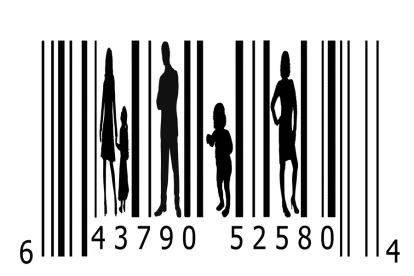On December 20, 2018, the FAR Council published a final rule amending the FAR rule on human trafficking to provide a definition of “recruitment fees.” Federal Acquisition Regulation: Combating Trafficking in Persons—Definition of "Recruitment Fees," 83 Fed. Reg. 65466. The final rule, which becomes effective on January 22, 2019, amends FAR Subpart 22.17 and the associated clause at FAR 52.222-50, to offer further guidance on the FAR policy against human trafficking originally established in 2015. The amended FAR rule enables consistency in the application and enforcement of the prohibition and aids in eliminating any disparities that may have previously existed in the interpretation of what constitutes a recruitment fee. With the amendment of this rule and a clearer understanding of the broad scope of prohibited recruitment fees encompassed by the term, contractors have a greater responsibility to prevent their supply chain from charging employees and potential employees recruitment fees.
Prohibited Recruitment Fees
The final rule identifies the types of charges and fees that contractors, subcontractors, and their employees or agents are prohibited from charging to employees or potential employees under the government policy on combating trafficking in persons. Under the rule, “recruitment fees” are defined as “fees of any type, including charges, costs, assessments, or other financial obligations, that are associated with the recruiting process, regardless of the time, manner, or location of imposition or collection of the fee.” Recruitment fees include, but are not limited to, fees that are associated with the recruiting process for:
- Soliciting, identifying, considering, interviewing, referring, retaining, transferring, selecting, training, providing orientation to, skills testing, recommending, or placing employees or potential employees.
- Obtaining permanent or temporary labor certifications or visas, including associated fees.
- Acquiring photographs and identity or immigration documents, such as passports, including any associated fees.
- Accessing the job opportunity, including required medical examinations and immunizations; background, reference, and security clearance checks and examinations; and additional certifications.
- An employer’s recruiters, agents or attorneys, or other notary or legal fees.
- Language interpretation or translation, arranging for or accompanying on travel, or providing other advice to employees or potential employees.
- Government-mandated fees, such as border crossing fees, levies, or worker welfare funds.
- Transportation and subsistence costs.
The list of examples set forth in the final rule are illustrative of the types of prohibited fees, but the list is not exhaustive. All fees that meet the definition, meaning all fees associated with the recruitment process, constitute prohibited recruitment fees regardless of the industry or type of job, the timing of the fee, or whether an employee or a third party collects the fee. Other factors such as whether the fee is paid in property or money, deducted from wages, paid back in wage or benefit concessions, or paid back as a kickback, bribe, in-kind payment, free labor, tip, or tribute are also inconsequential and do not alter a fee’s status as a prohibited recruitment fee if incurred in association with the recruitment process.
Greater Accountability
Beyond the effect of offering much-needed clarity on the broad-reaching definition of recruitment fees to contractors in order to ensure they are not engaging in trafficking-related activities, the amended FAR rule imposes greater accountability with respect to a contractor’s compliance plan and due diligence obligations. For example, the FAR rule on trafficking requires all contractors who have a contract in excess of $500,000 for supplies, other than commercially available off-the-shelf items, to be acquired outside the U.S., or services to be performed outside the U.S., to implement a compliance plan and procedures to prevent any prohibited activities and to monitor, detect, and terminate the contract with a subcontractor engaging in prohibited activities. SeeFAR 22.1703(c).
Contractors must also certify that to the best of their knowledge their supply chain had not engaged in any trafficking-related activities. Therefore, contractors should evaluate and revise their compliance plans accordingly. Companies likely will need to establish additional procedures to adequately prevent prohibited activities and to monitor and detect potential violations in the supply chain as well as internally within their company.
With the expansion of this rule through the addition of a definition for “recruitment fee,” we anticipate that a new door has opened for potential litigation against contractors, particularly as supply chain non-compliance gives rise to increased False Claims Act enforcement. It is incumbent upon government contractors to ensure absolutely no prohibited recruitment fees are charged to employees or prospective employees, including subcontractor employees.
The False Claims Act may prove to be one of the more effective enforcement tools of the trafficking policy. Consequently, implementation of compliance plans and due diligence efforts that preclude prohibited recruitment fees under the new FAR definition is critical.





 />i
/>i

